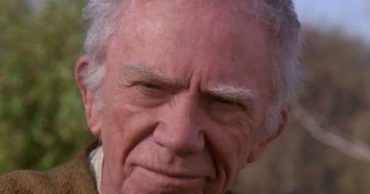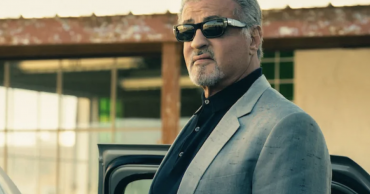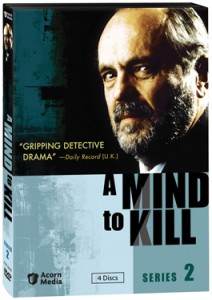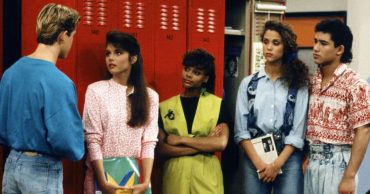We’re two episodes into the twelfth season of Supernatural, and it’s never been more serialized. It’s hard for any show with an episode order of 22 to really serialize their episodes, but it’s especially difficult for Supernatural. So much of the charm and charisma of the show rests in those Monster-Of-The-Week cases; so much of it rests on the deep thematic exploration that comes along with the hyper-focused nature of the episodic.
One thing that can get lost in heavily serialized narrative is the breadth of thematic depth; Supernatural, by the virtue of it’s heavily episodic nature, was able to tackle more topics and drill down on the same one from many, many different angles. To put it another way: shows like Breaking Bad go as deep as the Earth’s core, looking for gold and silver, but Supernatural digs more often in different places for the same thing.
The serialization is neither good nor bad ultimately, I think. It’s a necessary step towards ending the show, for one thing; if they ever plan on marketing a final season, Supernatural is going to have to have something to end on. Even the most episodic of shows need an end point, and Supernatural has been searching for one for a long time, I think.
Truthfully, it’s hard for Supernatural to not be serialized regardless; they have so many characters and dangling plot threads to juggle that the episodic MOTW-type episodes get put to the wayside. You can’t be episodic with Crowley, Rowena, Lucifer, Sam, Dean, Mary, Castiel, and the British Men of Letters all demanding ample screen time. You can’t hyper-focus on, say, the irony of a monster being more compassionate than the human that hunts it, or the idea that hardcore violence isn’t the answer, if you have to juggle an A, B, C, D, and E plot.
One negative of this serialization (god, I am tired of typing that word) is that sometimes you have to do speed things up to get the information across. There are two instances in this episode where the pace goes from slow burn to frantic; once, when Crowley comes back, and second, right after when Sam and Mary hug. The first instance was one of strange plotting; we spend so much time in the A plot of “Rescue Sam” that we don’t get to the rest of the episode for nearly twenty minutes. We get, in quick succession, the Rowena-Crowley scenes, and the Vince (Rick Springfield!) introduction. It’s a lot of plot and other information to convey in just a few quick scenes, and the otherwise enjoyable languid tension-build pacing of the first twenty minutes gives way to rapid fire.
The second instance wasn’t so much strange as unnecessary. Why do we need to see a montage of Dean drinking on the floor, looking at pictures of his mother, or Mary looking through the journal, or Sam staring at ceiling fan? None of this conveys information we didn’t already kn0w (Dean struggling with his mother’s return, Mary struggling with how far behind she is, Sam struggling with, well, literally everything); it’s thirty seconds or so of time spent that we didn’t need. It’s frantic, but not in it’s need to give information, but to kill time.
Having said that: I think that The CW made a wise, wise decision in having Andrew Dabb and Robert Singer take over. I’m not sure what it is about these two guys, but they have a better grasp on Supernatural than anyone since Eric Kripke, and if you catch me after a few cocktails, I might even put them above Kripke. One thing that Dabb and Singer seem to understand is the darkness of this world; Sam being visibly tortured by a blow torch was a stunning change for basic cable. How many times have we seen shows walk right up to the edge of darkness, and have the victim be rescued? Each time Toni Bevell went to torture him, I expected Dean to ride in and save the day; and it never happened.
Supernatural has a deep, deep foundation; it’s set in concrete and stone, and one could dig for years and years without reaching the bottom. Dabb and Singer are veterans of the show, and the TV business in general, and after this first two episodes, I believe they are on the best track possible.
* * *
I am fascinated by Mick and Toni as a pair. I don’t know who’s really in charge; he calls her lady, and she appears to take orders from him, but has more influence than a typical foot soldier. I struggle, too, in finding the core of her character; there is a real void-likeness about her—a sense of evergrowing sadism that burns brightest in the dark. She isn’t a sociopath, or a psychopath, or any sort of unfeeling monster; she feels fear acutely, maybe more than most. Her tangle with Sam shook her up, and when Mick told her she was going back to London for punishment, she looked at him like a cornered animal.
Mick, for his part, seems like middle management. He has juice, but it isn’t his to use. He’s a weapon, not the person wielding it. I find it difficult to locate his center, as well; does he care about the possibility of every American hunter being killed? Does he care about the lives affected, or the reasons why hunting in the States is so fractured and decentralized? I find it hard to believe that anyone at all wouldn’t have reservations, and I especially find it hard to believe that someone who spends every waking hour trying to stop monsters from killing humans would be 100% okay with killing humans, even if was to achieve a higher goal.
I suppose I am being naive. You don’t call in a hitter in the off-chance you’re planning on killing someone; you call them in when it’s time to pull the trigger. Mick and Toni, and the rest of the British Men of Letters, appear to have made their decision a long time ago.
* * *
The grimace on Dean’s face when Mary called John a great father was perhaps the most telling moment of the entire series. How hard it must be to re-litigate Dean’s breaking from John’s orthodoxy; how hard it must be to have to be the one that says it out loud. Dean hasn’t been a John’s Disciple in years and years, but it’s one thing to accept truth and make it a part of your foundation, and another to speak it to someone you care about. Dean breaks it to Mary as gently as he can, telling her that John changed, but even that isn’t the whole truth. John didn’t change as so much disappear, falling into a black hole so deep and dark that he became a part of it; and by the time he climbed back out, nothing was left of the father that tucked them in at night.
Sam may have given Mary John’s journal, but it’ll be up to Dean to explain who John was. It’ll be up to Dean to parent her, to bring her along in a world she was never meant to be a part of. It certainly won’t be Sam; his mother may as well be a stranger, or an old friend from Kindergarten that moved away. Dean is the last remaining link to Mary in this world. John is dead, Samuel is dead; Dean exists in her time and his, in the past and present, and he has to make sure that he doesn’t leave her behind, or stop her from making her way forward. He has to, essentially, become a parent.
How unfair life is, that Dean must do this again.
* * *
I have always related to Sam Winchester. I have always found his pain, and his guilt, and the deep insecurities to be similar to mine. If Dean is forced to be the adult, and bring along another child into adulthood, then Sam is the one stuck in perpetual childhood; always missing a key piece of the puzzle, always taking the hits, and always being the first one to stick his hand out of the dirt and drag himself into the sun.
Sam doesn’t know his mother; he doesn’t know if she likes tea, or coffee, or if she has a peanut allergy. He doesn’t know what her hands feel like, or how she smells when she carried him to bed, or the kind of movies she loves. She is a stranger; a friend from long ago, or a figure in a dream that you can’t get enough of. He is awkward around her; unsure of how to communicate, how to make her laugh. But instead of running, or hanging back in fear of not being able to get through, he opens up. He offers her a place to talk, and experiences of his own, and makes sure that she knows, first and foremost, that he is willing to help her. In his greatest moment of vulnerability, only hours since he was brutally tortured and assaulted, Sam chooses kindness and empathy over fear and anger.
He brings her the journal to help her fill in the blanks; he tells her that, just by being here, filled in the largest blank for him. He doesn’t ask for anything. He doesn’t want anything. Sam, more than anyone in Supernatural (and really any show), has learned to appreciate things for what they are. Sam doesn’t ask for anything from his mother because he just wanted her around, flaws and all.
She hugs him, and he hugs back.
* * *
I am interested, if a little put off, by the British Men of Letters storyline. Them as a force for evil (and make no mistake, that is what the plane on perpetrating) and as ruthless killing machines comes off as somehow flat. Is that really all they are? Just highly efficient killers of man and monster? I’m not saying it isn’t interesting, because it certainly is; just that I don’t want a great potential villain (and anti-hero) ruined because they can only play a single note. There has a been a lot of depth in these first two episodes and, it would be very disappointing for the A plot to be anchored by one long trumpet blast.
Equally: I hope that Rick Springfield finds another gear as Lucifer. As Vince the rocker, he had a quiet sadness and empathy that I found so, so endearing. But as Lucifer, that same quiet serves him less well; he doesn’t have the same gravitas that Mark Pellegrino had or black comic malevolence that Misha Collins imbued him with. Springfield needs to bring more heat, and bring it loud; that skinny, jittery frame paints a picture of a Lucifer on the edge of madness, and I want to see him go there. No more composed, calculated, one step ahead Satan; I want to see a Devil that burns everything down just so nobody else can have it.
A promising beginning for this twelfth season. Let’s hope it continues.
 Follow Us
Follow Us





Visitor Rating: 4 Stars
Visitor Rating: 5 Stars
Visitor Rating: 5 Stars
Visitor Rating: 3 Stars
Visitor Rating: 5 Stars
Visitor Rating: 5 Stars
Visitor Rating: 3 Stars